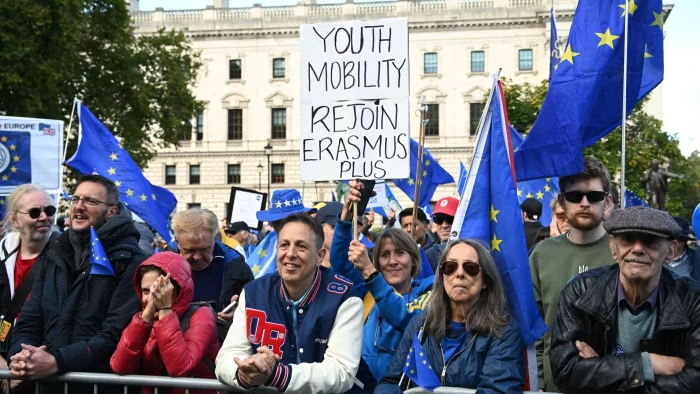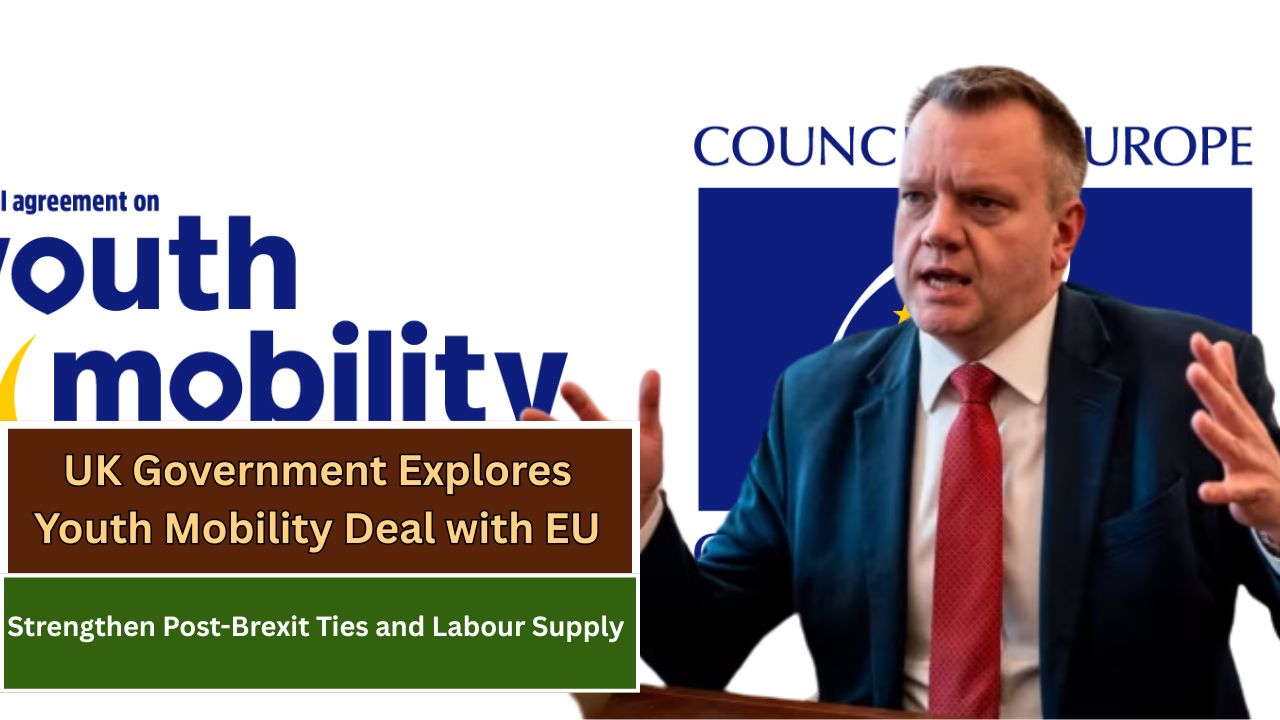The UK government is actively considering the creation of a youth mobility scheme with the European Union, a move that could open doors for thousands of young people to live, work, or study abroad. European Relations Minister Nick Thomas-Symonds confirmed the proposal ahead of a strategic UK-EU summit scheduled for May 19, 2025.
If implemented, the agreement would signal one of the most tangible efforts yet to rebuild ties strained by Brexit, particularly for younger generations who lost automatic movement rights under the EU’s freedom of movement rules.
What Is the Youth Mobility Scheme?
The proposed youth mobility scheme would allow people aged 18 to 30 from both the UK and EU member states to spend time in each other’s countries for work, study, or travel. Though not a return to the pre-Brexit freedom of movement, the agreement would facilitate short-term migration under controlled, reciprocal arrangements.
According to The Guardian, the European Commission is open to a stay of up to four years, although the UK government is considering more limited options such as 12-month visas with sector-specific quotas. These conditions aim to satisfy both economic and immigration concerns on the UK side.
The scheme would likely mirror existing youth mobility agreements the UK has with countries like Australia, New Zealand, and Canada, allowing young people to gain international experience and contribute to industries facing labour shortages.

Political Considerations: Balancing Opportunities and Migration Control
The move reflects Prime Minister Keir Starmer’s strategy to rebuild UK-EU cooperation while avoiding politically sensitive issues like rejoining the customs union or single market.
However, the scheme is not without domestic political friction. Home Secretary Yvette Cooper has expressed reservations, advocating for a “one in, one out” immigration approach to maintain overall net migration levels. This cautious stance contrasts with that of Chancellor Rachel Reeves, who supports the scheme as a means to boost the UK’s GDP by 0.2%, especially in labour-strapped sectors like hospitality and tourism.
Meanwhile, the European Commission sees the proposal as integral to restoring educational and cultural exchange disrupted since the UK’s exit from the EU. In particular, it could restore pathways lost with the UK’s departure from Erasmus+ and other youth-oriented programs.
Public Support and Economic Logic
A poll conducted by More in Common in August 2024 found that 58% of UK respondents supported the scheme, compared to only 10% who opposed it. The public sees value in offering young people the chance to gain global exposure and enhance their career prospects.

In addition to educational and cultural benefits, experts believe the program could play a role in addressing staff shortages in sectors such as hospitality, healthcare, and construction, all of which have struggled to recruit workers since freedom of movement ended in 2020.
Next Steps: May Summit and Beyond
The UK and EU are expected to flesh out the details of the scheme during the upcoming summit in Brussels on May 19, 2025, where both sides will also discuss defence, trade cooperation, and digital regulation. While a final agreement hasn’t been signed yet, early signs of flexibility on both sides indicate that a deal could be reached within the year.
The youth mobility scheme may ultimately serve as a model for pragmatic cooperation, helping the UK and EU forge a new, post-Brexit relationship centered on shared opportunities rather than political rifts.
This article has been carefully fact-checked by our editorial team to ensure accuracy and eliminate any misleading information. We are committed to maintaining the highest standards of integrity in our content.

Outside of work, he enjoys playing chess, following cricket, and writing short stories. His commitment to integrity and in-depth analysis strengthens OTE News’ mission of providing trustworthy journalism.




